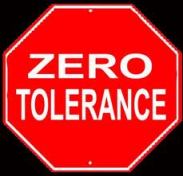
 On July 18, Parshat Matot-Ma’asei, we will be having farewell kiddush in honor of Rabbi Mayer and Shani Freedman and family.
On July 18, Parshat Matot-Ma’asei, we will be having farewell kiddush in honor of Rabbi Mayer and Shani Freedman and family.
All posts by admin
To Life, To Life, L’Chaim!
 Our l’chaim chairman, Gary Steiner, notified us that our supply is quite low. The l’chaim cabinet is almost empty. To those of us who
Our l’chaim chairman, Gary Steiner, notified us that our supply is quite low. The l’chaim cabinet is almost empty. To those of us who
appreciate something more than Slivovitz, but rather a real l’chaim (Scotch or Bourbon), please feel free to contribute a bottle (or money) of your choice.
Thanks and…l’chaim!
Great-grandson to Zalman Segal!
 Mazal tov to Zalman Segal on the birth of a great-grandson to his grandchildren, Sarah & Avi Fried in Surfside, Florida!
Mazal tov to Zalman Segal on the birth of a great-grandson to his grandchildren, Sarah & Avi Fried in Surfside, Florida!
Mazal tov to the proud parents!
Mazal tov to the proud grandparents, Lee & Steve Weinstein!
Mazal tov to the proud great-aunts and great-uncles, Debbie & Rabbi Harris Cooperman and Laurie & David Segal!
May they have much nachas from this newest member of the family.
Zero Rage Tolerance
 Note: This article was originally published in April of 2013, but I recently added the passage regarding positive uses of anger. It appears in the May 8th, 2015 edition of the Jewish News.
Note: This article was originally published in April of 2013, but I recently added the passage regarding positive uses of anger. It appears in the May 8th, 2015 edition of the Jewish News.
Breaking someone’s left index finger in a brawl doesn’t have an obvious connection to defiantly blaspheming the name of the Almighty. Yet, the Torah lumps together the laws and consequences of these two actions in one Torah passage as part of a series of sins also including murder and property damage as well. It is often difficult, admittedly, to determine the underlying order and organization of the Torah in many places. But the grouping of these seemingly unrelated topics into one unified lineup is particularly puzzling.
 R. Avigdor Miller (1908 – 2001), the prolific author and popular rabbinic speaker and educator, points out a common root that all of these sins share that serves as a basic ethical reminder. They are all typically committed in anger. This passage makes clear that there is responsibility and culpability even for deeds committed in a moment of wrath. In a fit of anger, a person can do anything – damage another’s property, assault and injure someone, commit the blasphemy of cursing the Almighty Himself, and even commit murder. The Talmud, based on the verse “An angry person has many transgressions” (Proverbs 29:22), elaborates on the dangers of anger in some detail. One observation that it makes is that it is certain that a mercurial individual’s sins outweigh his merits. It is well known that although Maimonides (1135 – 1204) advocates moderation and balance in all character traits by following the golden mean, anger is one of the only two exceptions that he makes to this principle. Instead, from the perspective of good character, anger is never justified and one should self-enforce a zero-tolerance policy.
R. Avigdor Miller (1908 – 2001), the prolific author and popular rabbinic speaker and educator, points out a common root that all of these sins share that serves as a basic ethical reminder. They are all typically committed in anger. This passage makes clear that there is responsibility and culpability even for deeds committed in a moment of wrath. In a fit of anger, a person can do anything – damage another’s property, assault and injure someone, commit the blasphemy of cursing the Almighty Himself, and even commit murder. The Talmud, based on the verse “An angry person has many transgressions” (Proverbs 29:22), elaborates on the dangers of anger in some detail. One observation that it makes is that it is certain that a mercurial individual’s sins outweigh his merits. It is well known that although Maimonides (1135 – 1204) advocates moderation and balance in all character traits by following the golden mean, anger is one of the only two exceptions that he makes to this principle. Instead, from the perspective of good character, anger is never justified and one should self-enforce a zero-tolerance policy.
But isn’t anger sometimes positive and necessary to convey a message and a point? According to the Mussarites all character traits, including even those that seem overtly negative, have some context in which they can be used positively, benevolently, and beneficially. Does Maimonides, with his zero-tolerance policy disagree with that viewpoint? Rabbi Moshe Chaim Luzzato also writes about anger in his Mesilat Yesharim and, like Maimonides, writes that one should not get angry in any circumstances but adds that one should not even get angry when it is necessary for educational purposes. Lest the reader conclude that he advocates a permissive pedagogical style with no limits, consequences, or rebuke, he is careful to specify that a teacher should discipline his student and a parent must reprimand her child – even with anger. But it must only be a superficial demonstration of anger, in his words: “anger of the face, not anger of the heart.”
 It seems trite to discuss the negativity of a behavior like anger. That may only be due to the fact that we have not contrasted the zero-tolerance view expressed above with any other perspective. Although most people would agree that many of the pitfalls and potential dangers of anger are obvious, it nevertheless seems to be nearly universally widespread in our society. It is often glorified on the big screen. Because it is so common, we may unknowingly relate to it not as a harmful feeling and potentially dangerous basis for unwise or dangerous behavior, but rather as an emotion and motivation that is actually fully justified, legitimate, and respectable. We may think that it is healthy to express anger and unhealthy to suppress it and not act on it or show it. This stands in stark contrast to the Maimonidean approach mentioned above that anger is rooted a character flaw and can easily result in immature, irrational, and irresponsible thinking and behavior and ruined relationships. The Torah passage that begins with the blasphemer challenges us to rethink this attitude and recognize that anger is anything but prudent and respectable.
It seems trite to discuss the negativity of a behavior like anger. That may only be due to the fact that we have not contrasted the zero-tolerance view expressed above with any other perspective. Although most people would agree that many of the pitfalls and potential dangers of anger are obvious, it nevertheless seems to be nearly universally widespread in our society. It is often glorified on the big screen. Because it is so common, we may unknowingly relate to it not as a harmful feeling and potentially dangerous basis for unwise or dangerous behavior, but rather as an emotion and motivation that is actually fully justified, legitimate, and respectable. We may think that it is healthy to express anger and unhealthy to suppress it and not act on it or show it. This stands in stark contrast to the Maimonidean approach mentioned above that anger is rooted a character flaw and can easily result in immature, irrational, and irresponsible thinking and behavior and ruined relationships. The Torah passage that begins with the blasphemer challenges us to rethink this attitude and recognize that anger is anything but prudent and respectable.
A Little Clarity – Halachic Questions via Text Message
Due to the space limitations of a text message, please note that it is particularly important to read carefully, pay close attention to the context of the question, and use the answers as a springboard for further study.
If you would like my phone number to submit questions, please leave a comment and I will send it to you.
Q: Do you tovel glazed earthenware?
A: According to what seems to be an oral ruling of R. Moshe, glazed earthenware doesn’t need to be toveled since the coating is not considered to be significant.
Q: Regarding closing a store, is Erev YK stricter than Erev Shabbat?
A: No mention is made of any stringency in the halachic codes.
Q: I have a phobia of insects so I am unable to sleep in my Sukkah. Is it a valid Sukkah?
A: Yes, most people would be able to sleep in it.
Q: Does Tumaco cocoa powder need a hechser?
A: All cocoa powder is OK.
Q: If all of the ingredients are kosher, does a Jew need to turn on the stove to make pancakes for them to be kosher?
A: No, since the pancakes are not fit for an elegant affair (Star-K).
A Little Clarity – Halachic Questions via Text Message
Due to the space limitations of a text message, please note that it is particularly important to read carefully, pay close attention to the context of the question, and use the answers as a springboard for further study.
If you would like my phone number to submit questions, please leave a comment and I will send it to you.
Q: I bought a grill pan that says it was pre-seasoned with vegetable oil… Do you think that’s ok to use
A: Since we customarily treat vegetable oil as a product that needs a hechsher (since some processing facilities also produce animal-based oil), the pan needs to be kashered before use. It’s ideal if you have a pot big enough to immerse it in, or it can be dipped in the boiling water in parts. Keep in mind that since cast iron cookware is typically thick, you must keep it immersed until the heat penetrates it fully, i.e. until the water returns to a boil after its insertion. You don’t need to wash it beforehand (R. Dovid Cohen of the cRc in Sapirim).
Q: Just confirming that as I understand rabbi Lamm’s book, I cannot attend even a Sheva bracha.
A: It’s considered more of a simcha (happy) occasion than other celebrations and an avel (mourner) therefore cannot attend until after the first yahrzeit.
Q: If I make a soft hot pretzel out of the same dough that I use to make bread, is the bracha still borei minei mezonot?
A: Yes, since soft pretzels are not typically eaten as a meal but rather as a snack, the bracha is mezonot.
Q: If there is skin left on the fish at a fish counter but the scales have been removed, is it still kosher?
A: As long as you are able to ascertain (from prior experience, etc) that there were definitely scales, it is OK
Q: I am writing a quote in my notebook, and it has the word “G-d” in it. Can I write it without the dash?
A: It is written with a dash when there is a concern that it will be discarded with trash – which would be disrespectful. If you will always be keeping this notebook, that would not be a concern.
A Little Clarity – Halachic Questions via Text Message – Tisha B’av Edition
Due to the space limitations of a text message, please note that it is particularly important to read carefully, pay close attention to the context of the question, and use the answers as a springboard for further study.
If you would like my phone number to submit questions, please leave a comment and I will send it to you.
Q: My office inadvertently scheduled a full day of appointments on Tisha B’av. The clients will be upset if I reschedule them – and there will be a long wait until there will be openings in my schedule. Do I have to reschedule them anyway?
Advanced:
Q: Rice which is totally pareve which was originally cooked in a milchig oven, can I reheat it in a fleishig microwave?
A: If the rice was covered then it is no problem. If not, and the oven was ben yomo (used within 24 hours) or dirty then it can’t be heated up in a milchig (diary) microwave unless you cover it; if it was not ben yomo, then it’s OK even without covering it.
Q: If I used a fleishig nylon spoon to stir something hot (at least yad soledes bo) and pareve in a milchig pot, do I need to kasher anything? Neither was used in the last 24 hrs, and nothing charif was in the pot.
A: Nothing needs to be kashered, and the food is unaffected.
